THE VOTING WARS
The Voting Wars
FROM FLORIDA 2000 TO THE NEXT ELECTION MELTDOWN
RICHARD L. HASEN

Copyright 2012 by Richard L. Hasen.
All rights reserved.
This book may not be reproduced, in whole or in part, including
illustrations, in any form (beyond that copying permitted by Sections 107
and 108 of the U.S. Copyright Law and except by reviewers for the public
press), without written permission from the publishers.
Yale University Press books may be purchased in quantity for
educational, business, or promotional use. For information, please e-mail
sales.press@yale.edu (U.S. office) or sales@yaleup.co.uk (U.K. office).
Set in Scala & Scala Sans type by Integrated Publishing Solutions,
Grand Rapids, Michigan.
Printed in the United States of America.
Library of Congress Cataloging-in-Publication Data
Hasen, Richard L.
The voting wars : from Florida 2000 to the next election meltdown / Richard L. Hasen.
p. cm.
Includes bibliographical references and index.
ISBN 978-0-300-18203-3 (clothbound : alk. paper) 1. Election lawUnited
States. 2. ElectionsUnited StatesCorrupt practices. 3. Contested elections
United States. I. Title.
KF4886.H39 2012
342.7307dc23 2012000703
A catalogue record for this book is available from the British Library.
This paper meets the requirements of ANSI/NISO Z39.481992
(Permanence of Paper).
10 9 8 7 6 5 4 3 2 1
For Deborah, Shana, and Jared,
the lights of my life,
who deserve better than
the voting system they are inheriting
CONTENTS
PREFACE
Belief in the integrity of elections is essential to any democracy. As nations such as Iraq move from dictatorial rule to democracy, outside election observers play a critical role. Until these observers verify that the elections are free and fairthat those who are eligible are allowed to vote for the candidates of their choice, free of intimidation and bribery, and that neither election officials nor voters have improperly altered the tallieselection losers will doubt the results and will hold back support for the new government. The legitimacy of democratic government itself thus depends on faith in the rules for casting and counting votes, and in the fairness with which these rules are followed and enforced.
When belief in election integrity is lacking, bad consequences follow: people think their leaders do not serve the popular will or common good but the interests of some faction; they doubt their leaders legitimacy and thus the legitimacy of their laws and executive actions; and they are apt to believe that if one group is working to fix elections, its not only acceptable but necessary for others to do so as well. A lack of faith in elections becomes a self-fulfilling prophecy that undermines faith in democratic governance itself.
Belief in electoral integrity is crucial not only in emerging democracies but in all of them, including long-established ones such as the United States.
In recent decades it became common for US voters to view stolen elections as a thing of the pasta relic of the era of machine politics, and even then something largely confined to big cities and a few corrupt bosses. In our day, those who questioned the casting and counting of votes have increasingly been seen as part of a political fringe.
Over the past decade, however, this has begun to change. In our hyperpartisan political atmosphere, where people with of an opposing ideology are not to be merely disagreed with but denounced as malevolent and unhinged, the conduct of elections has become one more accusation to throw in opponents faces. We have entered a vicious cycle: continued questioning of the integrity of our elections encourages gaming of the electoral process by political insiders, agitation by political hacks aimed at undermining the legitimacy of the election of those on the opposing side, and a dangerous corrosion of public faith in electoral outcomes.
The shift in attitudes about election fairness began with the 2000 presidential election between Republican George W. Bush and Democrat Al Gore, in which the ultimate victory depended on a virtually tied vote in the critical state of Florida. The thirty-six-day dispute over who really won the state, and was therefore entitled to be president, altered American elections and put great stress on the publics faith in electoral integrity.
The problems revealed by the 2000 election are twofold. First are the actual defects in how we run our elections, and second are efforts by various factions to focus on the wrong issues for self-interested ideological reasons. It is the confluence of these two that creates the potential for a major crisis. And should we face another virtual tie in a presidential race, the rise of social media in the years since 2000 has the potential to make things much worse.
Our elections are plagued by technological, organizational, and political difficulties. Before 2000, few understood how inaccurate some of our vote casting and counting equipment really is. People took it on faith that the numbers of votes reported in the media accurately reflected voter preferences. But these inaccuracies extended well beyond the notorious punch card voting machines with their hanging chads, which played such a prominent role in the 2000 election dispute. Election officials often lack the resources and training to effectively manage the complexity of a large modern election. For example, the lists of eligible voters are sometimes wildly inaccurate, and the procedures put in place to clean up the rolls sometimes lead to the disenfranchisement of eligible voters. Election officials need to roll out election equipment on election day to a large number of polling places staffed by volunteers or poorly paid workers, many of whom lack adequate training or formal expertise. Some jurisdictions handle elections well; many dont.
Procedures and equipment vary from county to county, with the result that voters chances of casting a vote in a statewide election that will actually be counted are wildly unequal. In our hyper-decentralized system, state and federal election officials have very little control over election decisions made at the local level.
On top of the localism issue is the problem of partisanship. Many state and local election officials are either elected in partisan elections as Democrats or Republicans, or are appointed and supervised by partisans. The United States is almost alone among mature democracies in allowing the foxes to guard the henhouse. Even ignoring those election officials who consciously manipulate election rules to achieve partisan advantage, theres no question that Democrats and Republicans, acting from their own views of the public interest, tend to administer elections differently. Democrats, for example, are much less likely to be interested in purging voter rolls of potentially ineligible voters than Republicans are. Democrats worry about disenfranchising eligible voters; Republicans worry about the potential for fraud from bloated voter rolls.
Aside from the real problems with running our elections, since 2000 we have seen political insiders become increasingly aggressive in undermining the legitimacy of the electoral process by making unsupported claims about election integrity. Key elements in the Republican Party have pushed the false belief that voter fraud is a major influence in our elections and that it tends to benefit Democratic candidates. In response, Democrats have attacked Republican anti-fraud efforts, such as voter identification laws, as means of suppressing the Democratic vote, the new Jim Crow. While some Democratic claims of voter suppression are legitimate, others are not, and even genuine voter suppression efforts seem unlikely to be effective in suppressing Democratic turnout.
Next page

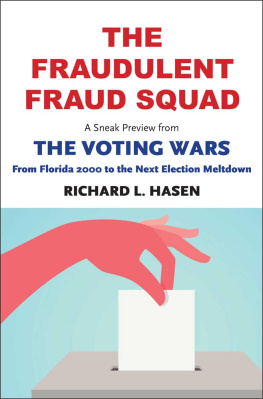
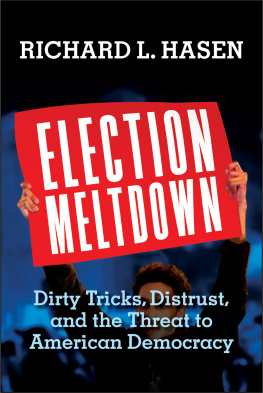
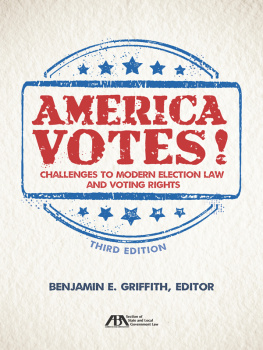
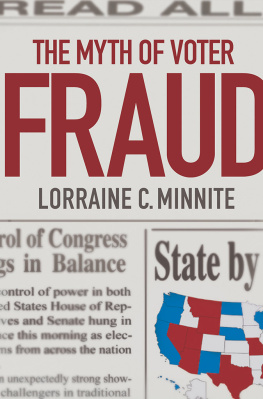
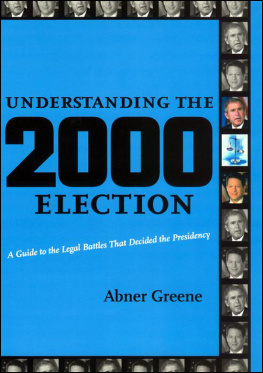
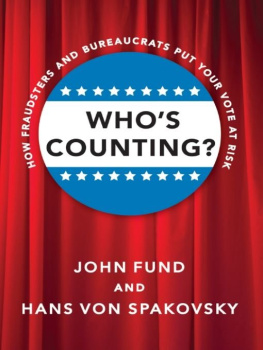
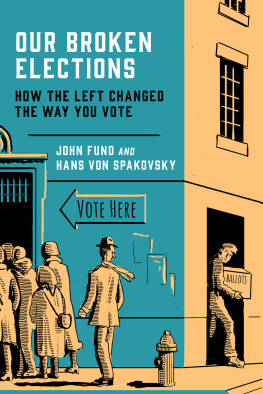
![T. H. Logwood - Voter Fraud and the 2020 Presidential Election; “Joe Biden wins by a Miraculous Landslide” [with appendices]](/uploads/posts/book/259666/thumbs/t-h-logwood-voter-fraud-and-the-2020.jpg)
